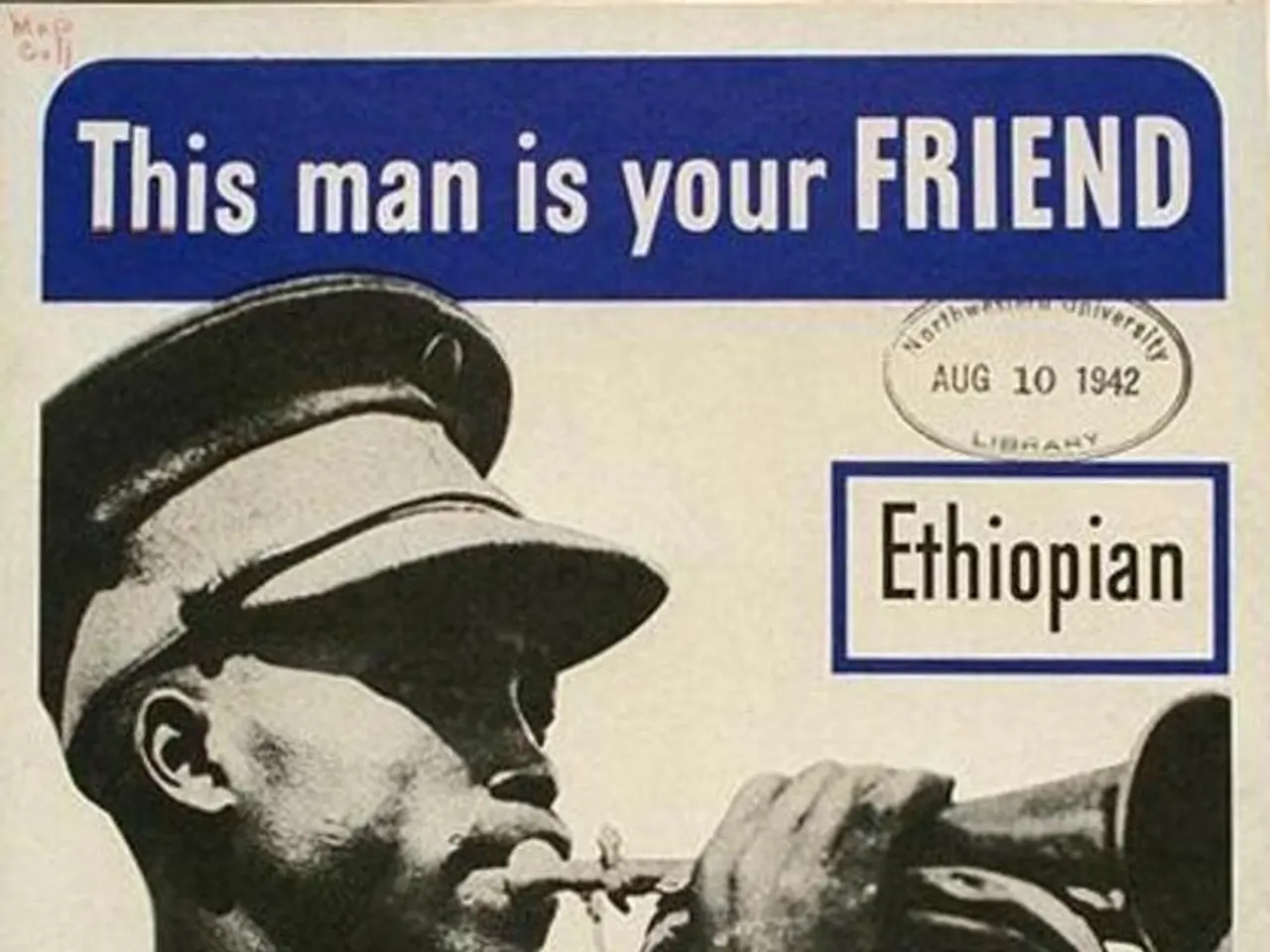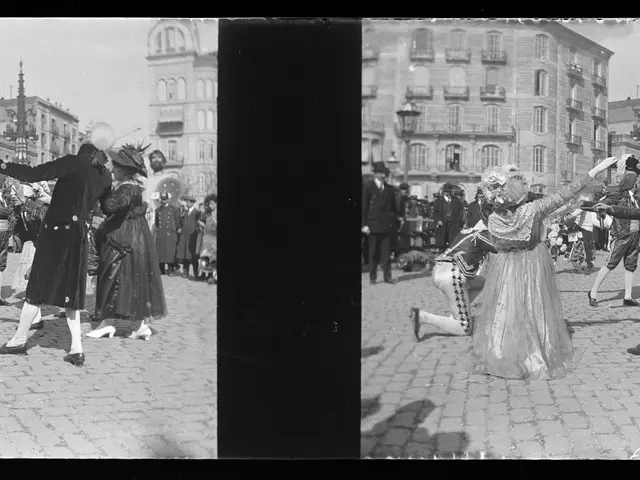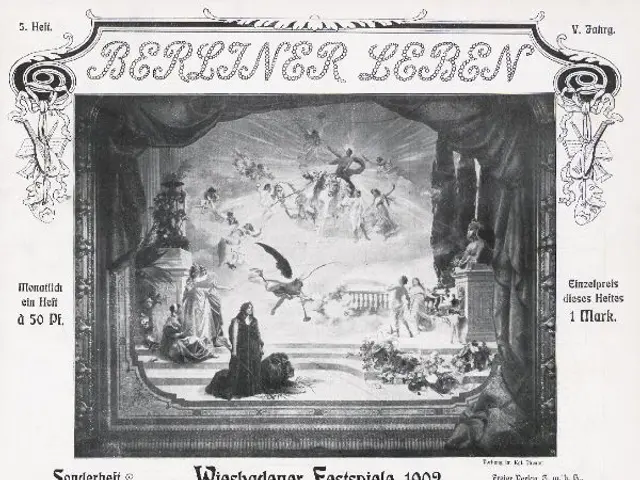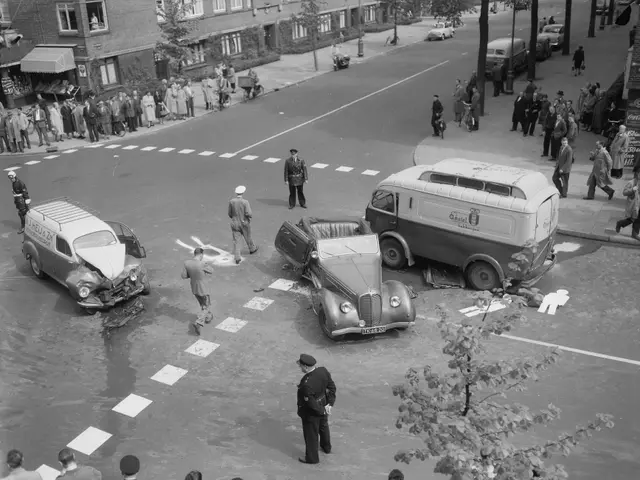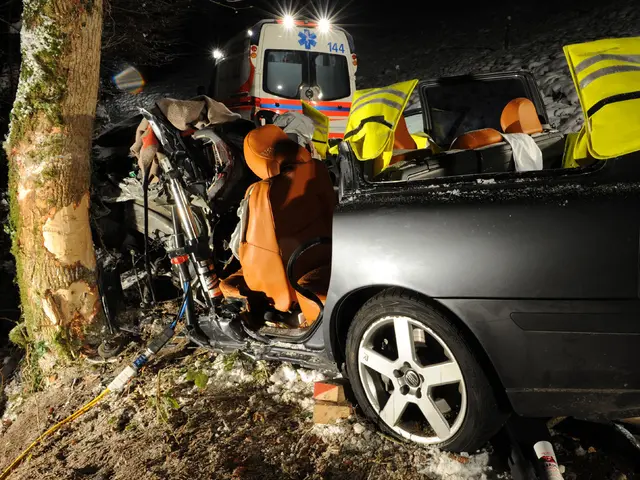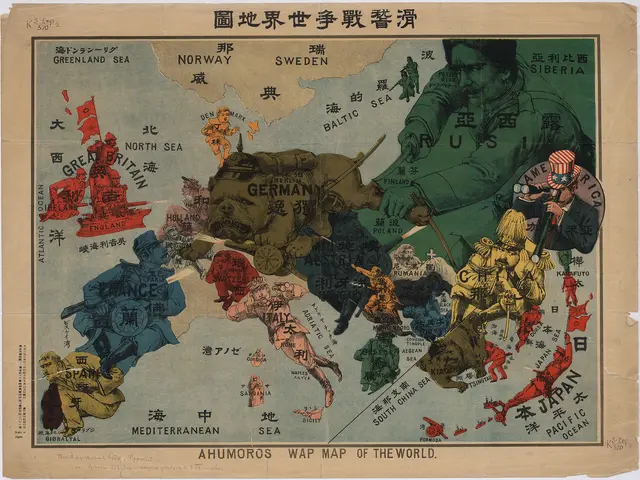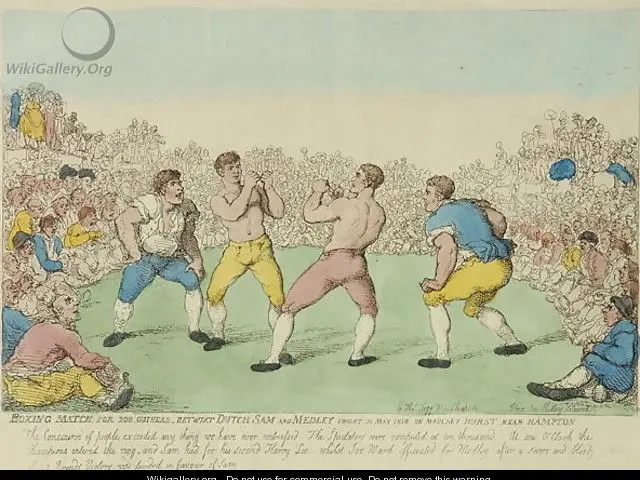Canadian authorities prohibit the entry of Irish rap collective Kneecap
Irish Rap Group Kneecap Banned from Entering Canada
In a rare move, the Canadian government has barred Irish rap group Kneecap from entering the country, citing concerns over "hate speech" and "glorification of terrorism." The decision has sparked a debate about freedom of expression, with some arguing it is a violation of the group's rights, while others believe it is necessary to protect Canadian values and laws.
The ban comes after Kneecap was also barred from performing in Hungary in July, with the Hungarian government spokesperson claiming the band "normalizes hate and terror." The group was due to perform in Toronto and Vancouver starting October 14, but these shows have now been cancelled.
Kneecap has been vocal in their support for terrorist organizations such as Hezbollah and Hamas, and have been accused of amplifying political violence. One member of the group, Liam Óg Ó hAnnaidh, is currently facing terrorism-related charges in the UK. The British government has accused him of displaying a Hezbollah flag at a concert, a case that is currently in the courts.
The Canadian government's decision to ban Kneecap marks a significant departure from its usual policy, as it rarely denies entry to musical groups. The Department of Immigration, Refugees and Citizenship has the right to refuse entry for reasons including concerns related to security, human or international rights violations, or criminal activity. However, they cannot comment on Kneecap's case specifically out of privacy concerns.
Howard Sapers, executive director of the Canadian Civil Liberties Association, sees Kneecap's dilemma as a "fundamental question of freedom of expression." He argues that there's a higher threshold to define hate speech for legal action than what an immigration officer needs to deny entry. Sapers believes the government's decision to ban Kneecap was made public in an overtly political manner and is concerned about the potential politicization of administrative processes.
Vince Gasparro, Parliamentary Secretary for Combatting Crime, claims the government's decision to ban Kneecap is fully in line with Canadian free speech laws. He believes that open endorsements of terrorist groups are not free speech. Kneecap has responded to the allegations, calling them "wholly untrue and deeply malicious."
The group has also been accused of displaying hate symbols that directly target the Jewish community, though the specific symbols were not specified. Sapers believes that while freedom of expression is important, it must be balanced against the need to protect vulnerable communities from hate speech.
Significant Zionist lobbying groups, including the Centre for Israel and Jewish Affairs, are alleged to have pressured the Canadian government regarding Kneecap's ban. However, the government has not confirmed or denied these claims.
As the debate continues, it is clear that the case of Kneecap raises important questions about freedom of expression, the role of government in regulating speech, and the balance between protecting Canadian values and upholding the rights of individuals.
Read also:
- Late-night host Lawrence O'Donnell responds to Jimmy Kimmel's departure with a discussion on a subject "Donald Trump doesn't wish us to examine"
- EU Member States cast their decisions
- Eighteen-Year-Old Speaks Out Against Lowering Voting Age to Sixteen
- King Charles's body language analyst dissects signs of apparent 'impatience' exhibited by Charles towards Trump
